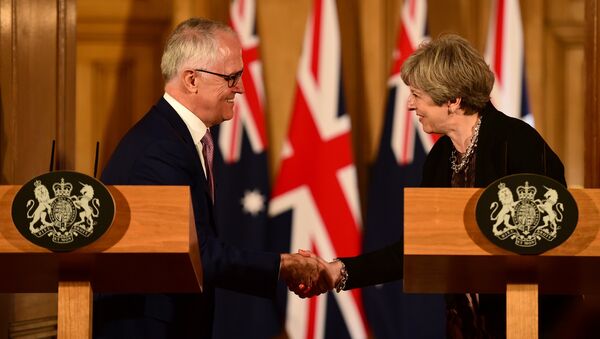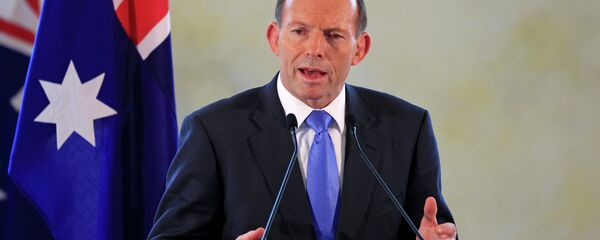The Australian government released its future foreign policy blueprint in a 136 page white paper on November 22, which made no special reference to expanding the relationship with the United Kingdom leading some observers to suggest that Britain is increasingly irrelevant to the Asia-Pacific nation's strategic vision.
PM’s major foreign policy announcement today covers issue of major interest to #Tasmania incl more opportunities for business, continuing Antarctic commitment and protecting the oceans #FPWhitePaper @TCCI @AusAntarctic @dfat @CSIROnews @WillHodgman https://t.co/uYjx8d2Njk
— DFATTas (@DFATTas) 23 November 2017
While Australia has repeatedly expressed interest in a post-Brexit free-trade agreement with Britain, it has maintained that its current negotiations with the European Union take precedence.
Dr. Paul Smith of the University of Nottingham’s School of Cultures, Languages and Area Studies told Sputnik that Theresa May's repeated vision for a "Global Britain," establishing independent trade agreements with far-flung partners is highly unrealistic.
"I think it's increasingly untenable on her part. There's this kind of sentimental, nostalgic idea amongst some people that we suddenly can turn the clock back to the time when Australia, Canada and New Zealand were Dominions and we had special relationships with them," Dr. Smith told Sputnik.
"Australia and New Zealand are Asia-Pacific countries and that's where their economies are based and imagining a relationship with them could replace a relationship with the EU is far-fetched and cloud-cuckoo land," he added.
UK Prime Minister Theresa May has repeatedly outlined her desire for Britain post-Brexit to operate under conditions of completely free trade and develop new partnerships with China, India, the US and GCC states.
Australia and New Zealand are the UK's priority for a post-Brexit trade deal, "after the United States", says Fox
— Owen Bennett (@owenjbennett) November 1, 2017
Dr. Smith further explained that it will be far harder for Britain re-forge trading arrangements with countries that are so far-flung.
"Most countries in the world trade within groups and there are negotiations between those groups. There are very few states across the world that trade "openly." There are collections of states who trade and have specific relationships," Dr. Smith explained.
Australia-UK Relationship That Was
Former Australian Prime Minister Tony Abbott, while initially encouraging Britons to vote Remain, in 2016, enthusiastically embraced the UK's decision to exit the European Union and called for absolutely free trade between Australia and Britain after Brexit.
Australia's current Prime Minister Malcolm Turnbull also called for a dramatic liberalization of trade and mobility for professionals between the Anglophone nations during UK Foreign Secretary Boris Johnson's 2017 Australasian visit.
The former Pacific colony was among the first countries to establish a trade-mission in London to seek out possibilities for a post-Brexit trade expansion.
Britain was Australia's principal trading partner and effectively controlled its foreign policy until around 1945, when the Australia New Zealand United States (ANZUS) Treaty drew the Pacific nation away from its colonial parent.
Economic relations further declined in the early 1970s with Britain's accession to European Economic Community, which became the European Union, forcing Australia find new trading partners closer to home.



